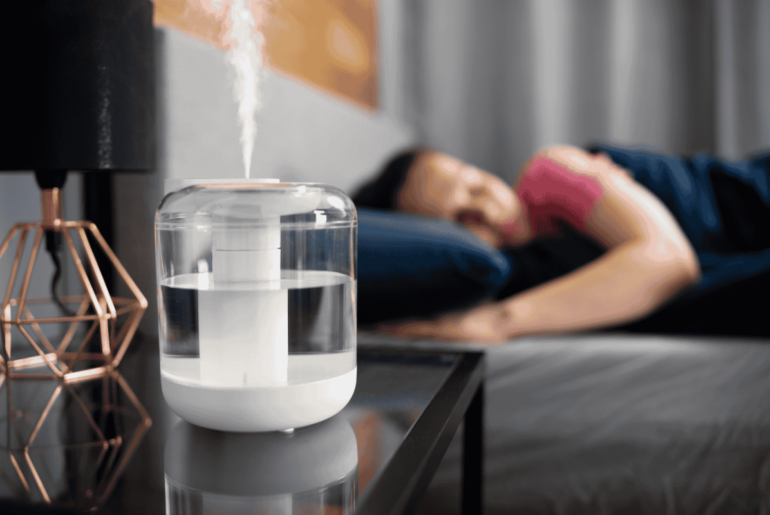If Are you searching for the best orange juicer machine for your kitchen or business venture? You are at the right place. Keep reading, as you can get the top best picks to choose from here. Oranges pack many vitamins that are great for kids and adults. Adding orange juice to your kid’s diet can help promote growth and healthy living.
Why you need to use Orange Juicer Machine?
There are several reasons why someone might want to use an orange juicer machine. The most obvious reason is that a juicer can help you make fresh juice quickly and easily. This is especially useful if you want to make a large quantity of juice at once. Additionally, using a juicer can help you extract more juice from your oranges, which can save you money in the long run. Additionally, a juicer can help you make juice with less pulp and seeds, which can make the juice more enjoyable to drink. Finally, using a juicer can help you create a variety of different juice blends and flavors, which can add some excitement and variety to your juice-drinking experience.
How to Make Orange Juice using Juicer Machine
The Hand squeezer, regular juicer, and citrus juicer are the best options to make the orange juice. And if the rind of orange is bitter, peel it first using an electric juicer. Hand squeezer orange juicer is a little hard for large quantities, so if it’s huge, orange uses a regular juicer or citrus juicer.
List of Best Orange Juicer to buy in India
1. Crystal Plastic Xpress Handy Juicer 2 in 1
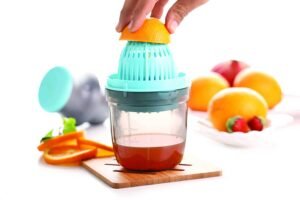
Colour: Multicolor
Material: Plastic
Brand Name: Crystal
Item Weight: 0.24 Kilograms
Item Dimensions: LxWxH 11.5 x 10.5 x 18 Centimeters
Crystal Plastic Xpress Handy Juicer Customer Rating


2. Philips HR2775 1-Litre 25-Watt Citrus Press Juicer (White)
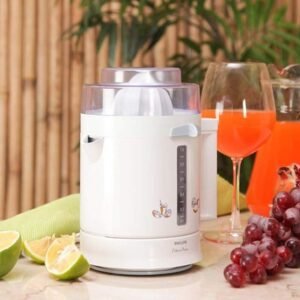
Colour: White
Material: PP and SAN Plastic
Brand: PHILIPS
Item Weight: 1022 Grams
Item Dimensions: LxWxH 17 x 16 x 24 Centimeters
Power: 25 watts
Operating voltage: 220-240 volts; Dishwasher Safe: Yes
Warranty: 2 years on product

3. Philips HR2771 0.5-Litre Citrus Press (White)
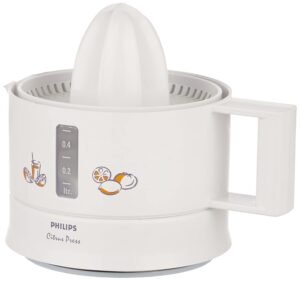
Colour: White
Material: PP and SAN Plastic
Brand: PHILIPS
Item Weight: 720 Grams
Wattage: 25 Watts
Power: 25 watts
Warranty: 2 years on product
Operating voltage: 220 volts
Philips HR2771 0.5-Litre Citrus Press Juicer Customer Rating


4. DHE BALAJI Hand Orange Juicer with Steel Handle with Vacuum
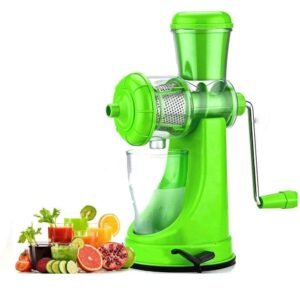
Colour: Orange
Material: Plastic
Brand: Generic
Item Dimensions: LxWxH 6 x 6 x 10 Centimeters
Material: 100% SS Mesh , 100% ABS Material

Types of Citrus Juicers available in India
When it comes to juicing citrus fruits, there are a few different types of juicers available to choose from. Each type of juicer has its own unique set of features and benefits, so it’s important to understand the differences between them in order to choose the right one for your needs. In this blog post, we’ll take a look at some of the most common types of citrus juicers and discuss their key features and benefits.
1. Manual / Hand Press Juicer
The first type of citrus juicer is the manual hand press juicer. This type of juicer is typically small and compact, making it easy to store and use. It works by using a lever or handle to apply pressure to the citrus fruit, which squeezes the juice out of the fruit and into a container. Manual press juicers are great for making small amounts of juice, and they’re also very easy to clean and maintain. However, they can be a bit labor-intensive, and they may not be the best choice for making large quantities of juice.
2. Electric Citrus Juicer
The second type of citrus juicer is the electric citrus juicer. This type of juicer is much faster and more efficient than a manual press juicer, and it can make larger quantities of juice in less time. Electric citrus juicers work by using a motor to spin a reamer or cone that squeezes the juice out of the citrus fruit. They typically come with a variety of different-sized reamers or cones to accommodate different types and sizes of citrus fruits. Electric citrus juicers are great for making large quantities of juice quickly and easily, but they can be more expensive and may take up more counter space than manual press juicers.
3. Citrus Press Juicer
The third type of citrus juicer is the citrus press juicer. This type of juicer is similar to a manual press juicer, but it uses a large, lever-operated press to extract the juice from the citrus fruit. Citrus presses are typically larger and more expensive than manual press juicers, but they can extract more juice from the fruit and can make larger quantities of juice more quickly. Citrus presses are great for making large quantities of juice, but they can be difficult to clean and store.
4. Citrus Reamer Juicer
The fourth type of citrus juicer is the citrus reamer juicer. This type of juicer is a manual tool that is used to extract juice from citrus fruits by hand. Citrus reamers are small and compact, and they are typically made of ceramic or plastic. To use a citrus reamer, you simply insert the reamer into the citrus fruit and twist it to extract the juice. Citrus reamers are great for making small amounts of juice, and they are also very easy to clean and maintain. However, they may not be the best choice for making large quantities of juice.
End Words:
In last words, there are a few different types of citrus juicers available, each with its own unique set of features and benefits. Manual press juicers are small and compact, and they are great for making small amounts of juice. Electric citrus juicers are faster and more efficient, and they are great for making large quantities of juice quickly and easily. Citrus presses are larger and more expensive, but they can extract more juice from the fruit and can make larger quantities of juice more quickly. And citrus reamers are small and compact, and they are great for making small amounts of juice by hand. Whichever type of citrus juicer you choose, be sure to consider your needs and preferences in order to find the right one for you.
Things to Consider Before Buying a Juicer
When it comes to buying a juicer, there are a few important things to consider in order to make sure you choose the right one for your needs. Here are a few key things to keep in mind before making a purchase:
1. Type of juicer:
There are several different types of juicers available, including centrifugal juicers, masticating juicers, and citrus juicers, to name a few. Each type of juicer has its own unique set of features and benefits, so it’s important to think about the type of juice you want to make and choose a juicer that is well-suited to your needs.
2. Capacity and size:
Juicers come in a range of different sizes, so it’s important to consider the amount of space you have in your kitchen and the quantity of juice you want to make when choosing a juicer. If you have limited space, a smaller juicer may be the best choice, while if you want to make large quantities of juice, a larger juicer may be more suitable.
3. Price and budget:
Juicers can range in price from under $50 to several hundred dollars, so it’s important to think about your budget and choose a juicer that fits within your price range. Keep in mind that more expensive juicers may have more advanced features and may be more durable, but they may not be necessary for everyone.
4. Ease of use and cleaning:
Juicing can be a messy and time-consuming process, so it’s important to choose a juicer that is easy to use and clean. Look for juicers that have easy-to-use controls and that come with accessories like cleaning brushes to make the process of juicing and cleaning up easier.
5. Quality and durability:
When making a significant investment in a juicer, it’s important to choose one that is of high quality and that will last for many years. Look for juicers that are made from durable materials and that come with a warranty to ensure that you can get the most out of your investment.
Overall, there are a few key things to consider before buying a juicer, including the type of juicer, capacity and size, price and budget, ease of use and cleaning, and quality and durability. By keeping these factors in mind, you can make an informed decision and choose the best juicer for your needs.


